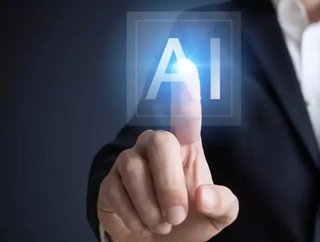Comment: The 'boring' truth behind artificial intelligence

Recent advances in artificial intelligence mean that soon no-one will need to go on holiday, have dinner in a restaurant, watch a film, or even go on a date. Thanks to the miracle of technology, we’ll be able to send the machines to perform these tiresome chores for us, freeing up valuable time for much more satisfying tasks such as completing our tax returns.
This dystopian vision is obviously ridiculous, but it illustrates how we’re getting the conversation about AI the wrong way around. Consider, for example, how most stories about AI focus on how technology can beat the world’s best Go player, or write genuinely frightening horror stories. All this is terribly clever, but it doesn’t help businesses to harness the power of AI.
In fact, it only serves to obfuscate what AI is actually useful for, and how it can transform businesses’ operations by automating much of the drudgery involved in many business processes. In fact, many of the most exciting applications of AI are deathly dull – they involve tasks such as compliance, auditing, and crunching through enormous volumes of data. This dullness is what makes AI so interesting; yet you wouldn’t know it from what you read in the papers.
As an industry, we’re doing a really poor job of communicating the real-world applications and benefits of AI. While the media naturally wants to focus on robotic waiters and poetry-writing chatbots, technology providers aren’t helping things by blithely appending “AI” to every product or service they sell, like some sort of verbal tic.
As a result, many businesses end up thinking that these exciting applications are the whole point of AI, and that the technology has no practical use for their day-to-day operations. This mentality, if it continues, will have some serious repercussions; not just within individual businesses, but potentially on the wider economy.
If we leave artificial intelligence to the research scientists, they will develop some fascinatingly clever and utterly useless applications, such as the first artificial stand-up comedian. We need to get businesses comfortable with AI, and capable of using it effectively if we are to unleash its full potential. If we want AI to crack the most difficult questions facing our world today, then we need to develop the skills within business, and start the long process of experiment and iteration on which new discoveries depend.
For most companies, their first experiments with AI won’t be an attempt to pass the Turing Test, but rather the automation of tedious tasks and business processes. Businesses should be looking at how they can apply AI to solve the real problems that they are facing in the here-and-now; issues such as the time-consuming and expensive task of compiling financial reports, de-duplicating big data sets, conducting compliance, or answering common customer queries.
SEE ALSO:
-
AI and blockchain: Solving supply chain’s transparency problem
-
Companies increasingly utilising analytics to protect against supply chain fraud
-
UPS joins alliance to create blockchain standards for logistics
While AI applications will differ widely between different companies and industries, the urgent imperative of adopting, experimenting and adapting this technology is common to all. Take healthcare, for example. It’s all very well talking about robot doctors and AI diagnosticians, but unless health providers have the technology infrastructure, the organisational experience and the human expertise, it’s going to be impossible for them to bring these life-changing applications to fruition.
We also need to start seeing the bigger picture. This is not just an issue for individual organisations, but a matter of strategic importance to UK plc. Artificial intelligence obviously has a central role to play in fixing this country’s longstanding productivity problem by automating tasks and making workers more efficient. Meanwhile, businesses that adopt AI initiatives will be helping to train the next generation of technology experts, and providing them with the sort of practical experience that you simply can’t get in the classroom or lecture theatre.
This, in turn, helps us to address one of the biggest concerns about AI, which is that it will steal our jobs and make entire careers redundant. You’ll often hear the claim that these technologies will create as many jobs as it destroys; this will only be true if we are giving workers the skills they need to master AI, rather than be replaced by it.
We need to make AI seem relevant to every organisation and so, somewhat counterintuitively, we should celebrate this technology’s ‘mundanity’. The alternative approach – indeed, the one we seem to have been following so far – is to make it seem so theoretical, impractical and removed from the real world that few end up adopting it.
Instead, let’s concentrate on the dull and repetitious processes where AI can bring immediate and transformative benefits. Above all, let’s keep AI in its place – no-one wants the robots to have all the fun.






